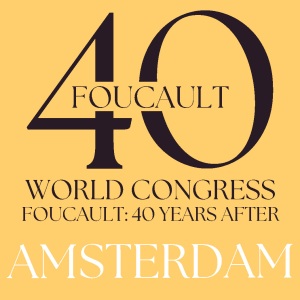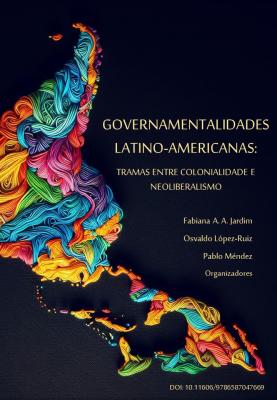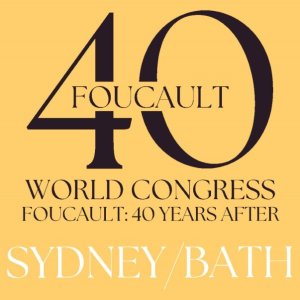 Foucault Circle
Foucault Circle
May 23-26 2024
Tentative Program
PDF of program
The Foucault Circle will be held in the Judee Wales Watson Theatre (known as the Judee) downstairs in the Little Building, Emerson College, 80 Boylston St, Boston, MA 02116. The conference is free and open to the public. However, all attendees must be registered in advance with the conference organizers to access Emerson College’s facilities. Please email Sam Binkley at Samuel_binkley@emerson.edu to be added to the visitor’s roster.
Thursday May 23
5:00 – 7:00pm: Asceticism, Care, and Pastoral Power
Moderator: Sam Binkley
Will Tilleczek (McGill University)
From Normativity to Social Form: Foucault’s Sociology of Ethics
Karl Katz Lyden (Södertörn University)
A Politics of Immediacy
Anna Ahlgren (Stockholm University)
Pastoral Power through Children’s Literature: Re/presentations of the Subject at School Entry
7:30pm: Welcome Reception
Contact organizers for details
Friday May 24
8:30 – 10:30am Intellectuals and Critique
Moderator: Patrick Gamez
Daniel Schultz (Whitman College)
Foucault: Secular Critique or Critique of the Secular?
Kevin Thompson (DePaul University)
Lessons from the GIS (Health Information Group): Truth-Telling, Demedicalization, and the Government of Life
Daniel Wyche (Columbia University)
Foucault’s Lost Concepts: Intellectuals, Power, and Normativity
10:45 – 11:45am Memorial for Joanna Crosby
Erinn Gilson (Merrimack College)
Dianna Taylor (John Carroll University)
Lauren Guilmette (Elon University)
11:45- 1:15pm Lunch/Business Meeting
1:15 – 3:15pm Strategies of Power in National Context
Moderator: Ed McGushin
Christian Lundahl (Örebro University)
The Reproduction of Episteme in Swedish Education, 16th to 18th century
Rebecca Robinson (Hong Kong Baptist University)
The Birth of Biopolitics in early China
Shao-Jie Chen & Yi-Chieh Lee (National Chengchi University)
The Government of homo salus: A Brief Genealogical
3:30 – 5:00pm Round Table: Histories and Futures of the Foucault Circle in conjunction with the World Congress: Foucault, 40 years After. In Memory of Tom Flynn (1936-2024)
Jana Sawicki (Williams College)
James Bernauer, SJ (Boston College)
Devonya Havis (University of Buffalo)
Dianna Taylor (John Carroll University)
Edward McGushin (Stonehill College
Kevin Thompson (DePaul University)
Dianna Taylor (John Carroll University)
6:00pm Dinner
Contact organizers for details
Saturday May 25
8:30-10:30am Emotions, Affect, Friendship
Moderator: Sam Binkley
Nicolas Arenas (London School of Economics and Political Science)
Unveiling marketing governmentality: epistemological and theoretical considerations for analyzing the instrumentalization of emotions in marketing practices
Lorenzo Petrarchi (Università di Bergamo)
The Foucauldian project of a “History of Friendship”
Kai Moore (Graduate Theological Union)
Fleshing Out “Bodies and Pleasures”: Affect, Morality, and Power in Resistance
10:45am-12:45pm Sexual Violence, Power and Discourse
Moderator: Lauren Guilmette
Miranda Young (New School for Social research)
Legibility and Intelligibility: The Discourse of Survivor Storytelling
Aurora Laybourn-Candlish (DePaul University)
The Administrative Grotesque and “The Second Rape”: A Foucauldian Critique of Carceral Approaches to Sexual Violence
Vilde Aavistland (University of Louisville)
A Punch in the Face: Foucault, Rape, and Sexual Violability
12:45 – 1:45pm Lunch
1:45 – 3:45pm The Archive in the Anthropocene
Moderator: Patrick Gamez
Almira Mert (DePaul University)
Philosophy and History of Philosophy in Foucault’s Le discours philosophique
Randall Johnson (Independent scholar)
Foucault’s Discourse on Discourse: Maintaining a tenuous grasp on an elusive now
Michael Eng (Appalachian State University)
The Names of the Archive: Writing between “Life Itself” and la vie la mort in Huffer, Foucault, and Derrida
4:00-5:30pm Book Panel: Foucault in Brazil: Dictatorship, Resistance, Solidarity by Marcelo Hoffman
Moderator: Ed McGushin
Corey McCall (Independent scholar)
Lynne Huffer (Emory University)
Response by Marcelo Hoffman (Pace University)
Sunday May 26
8:30-10:30am Workshop Discussion: The Lives of Infamous Men
Lynne Huffer (Emory University)
Fay Alafouzou (Emory University)
Taryn Jordan (Colgate University)
Haylee Harrell (University of Houston)
Ege Selin Islekel (Texas A&M)
Lauren Guilmette (Elon University)
10:45am-12:45pm Literature and Readership
Moderator: Lauren Guilmette
Samuel Talcott (Saint Joseph’s University) The Archive and the Act of Reading: Foucault on Flaubert and Modern Literature
Leonhard Riep (Goethe University Frankfurt)
The Gesture Toward the Abyss: Limit-Experience, Politics, and the Ontology of Language
Liubov Bogodelnikova (Irkutsk National Research Technical University)
What is a Reader? The Ethics of Reading in Foucault




